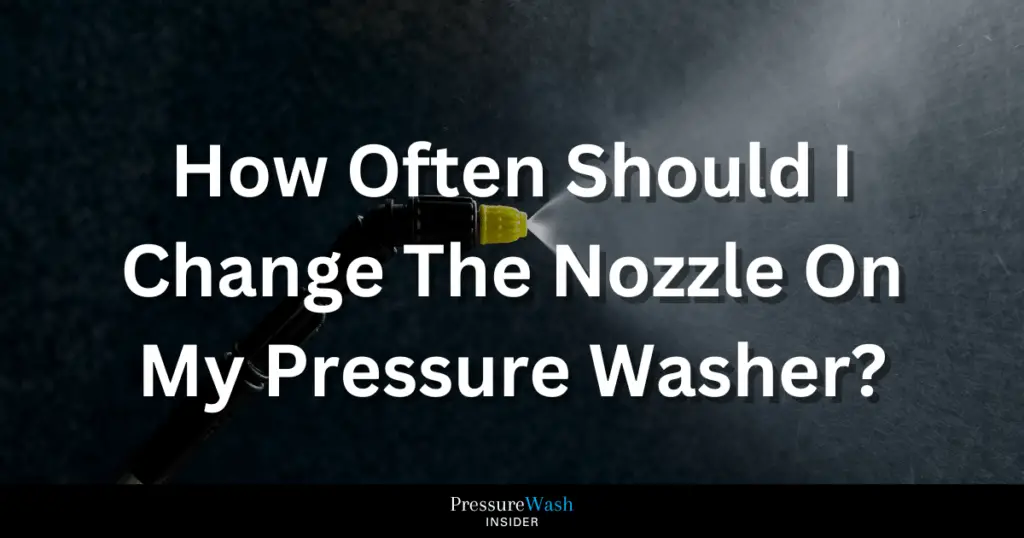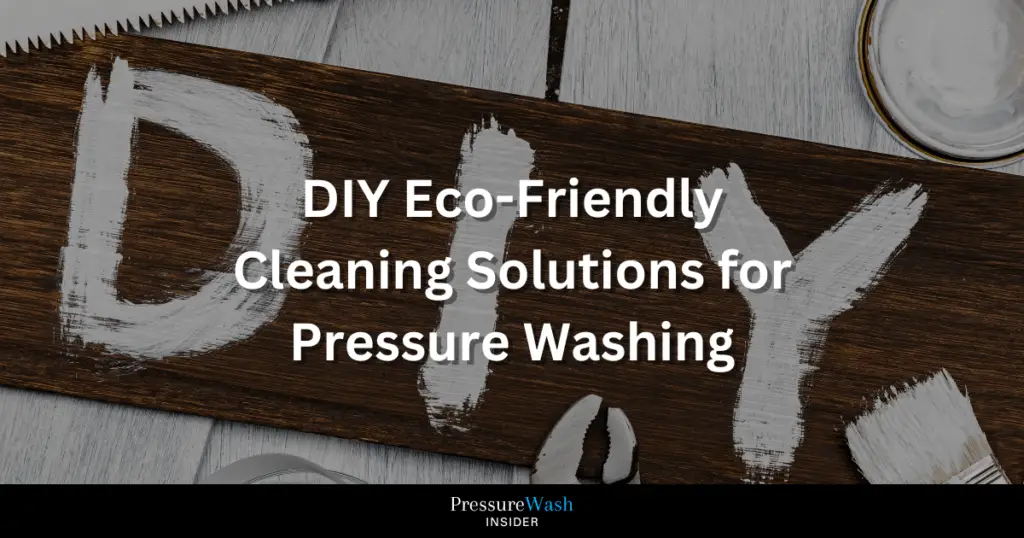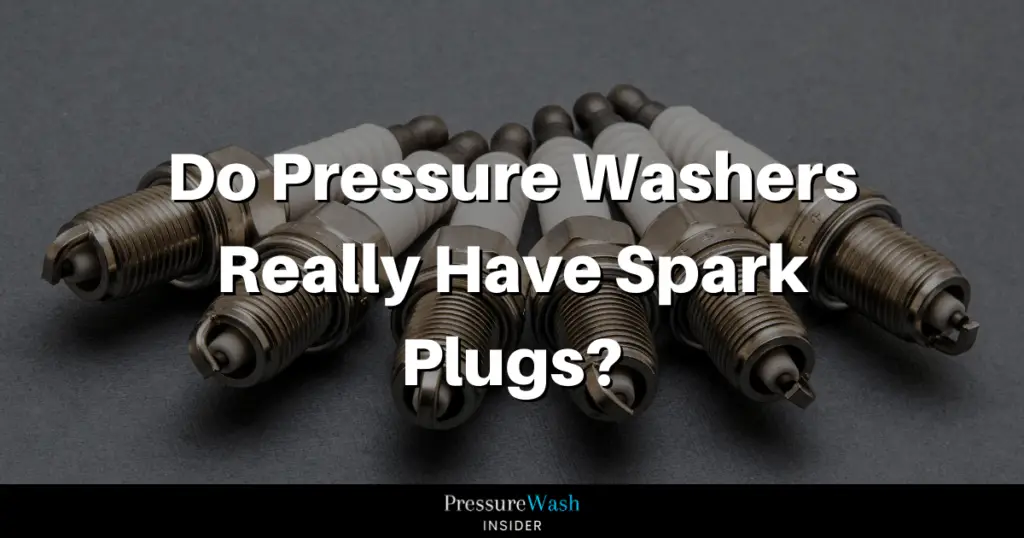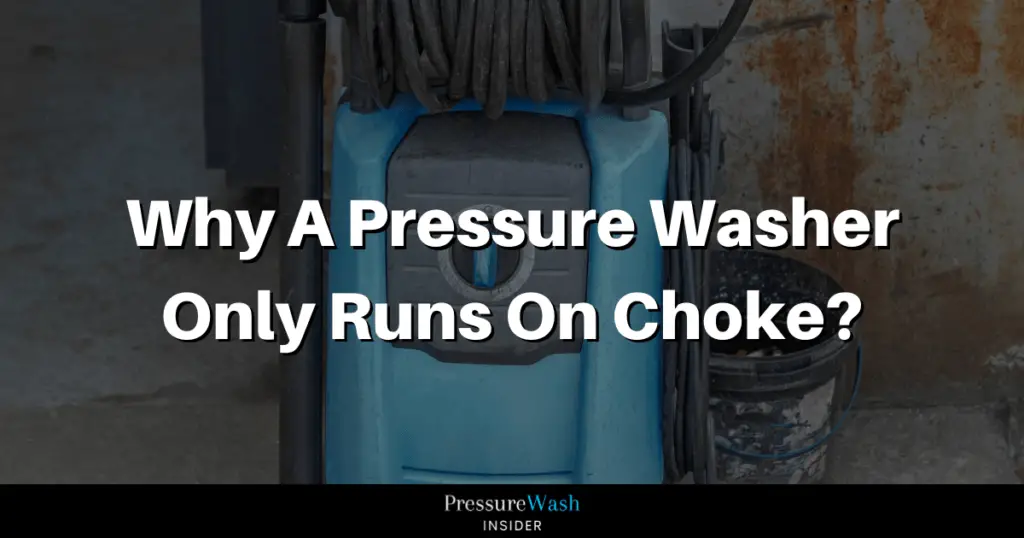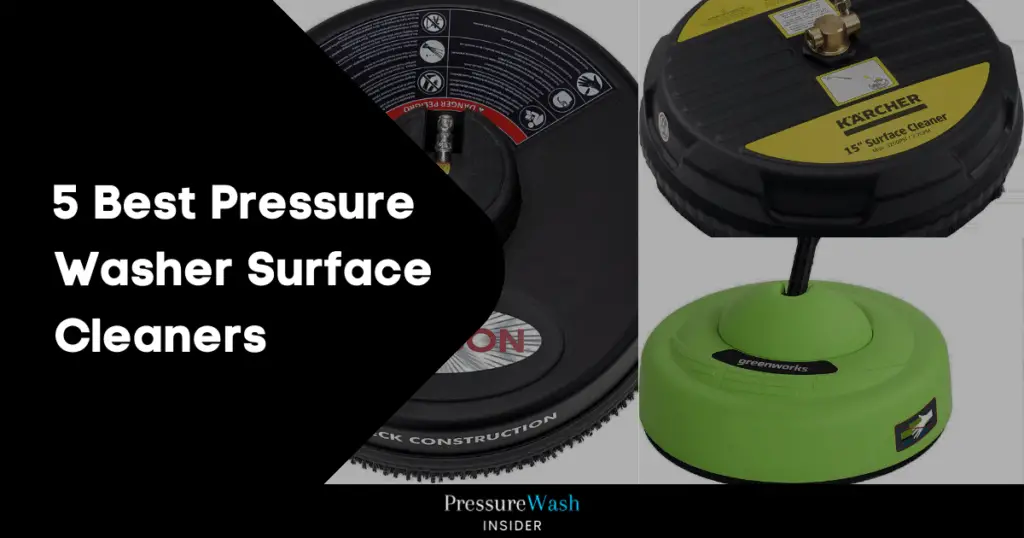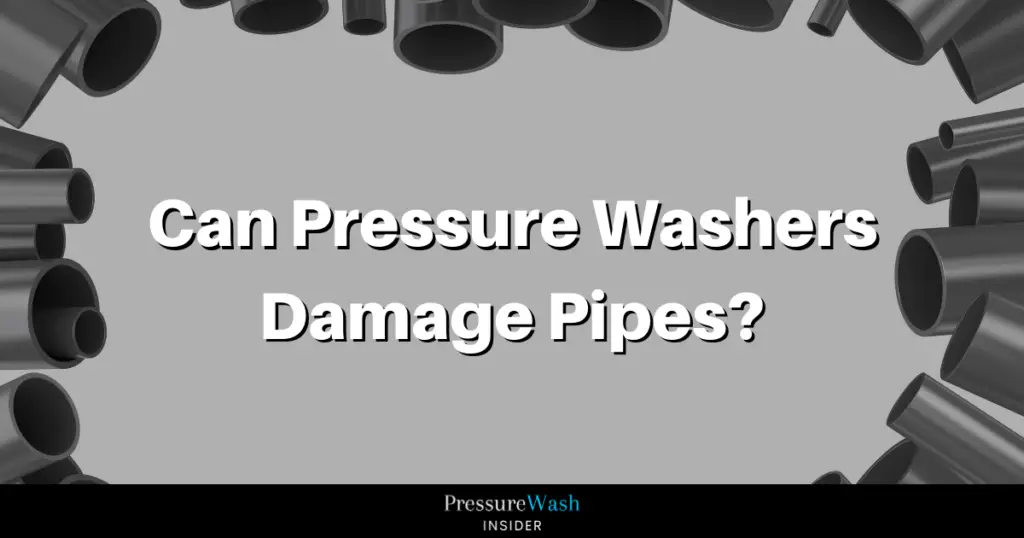There are a lot of pressure washers on the market, and it can be hard to know which one to choose. That’s why we’ve put together a list of the best pressure washers under $500 in 2023.
We’ve considered factors like power, cleaning performance, ease of use, and durability when choosing our top picks. So whether you’re looking for a powerful machine for tough jobs or a more lightweight model for occasional use, we’ve got you covered.
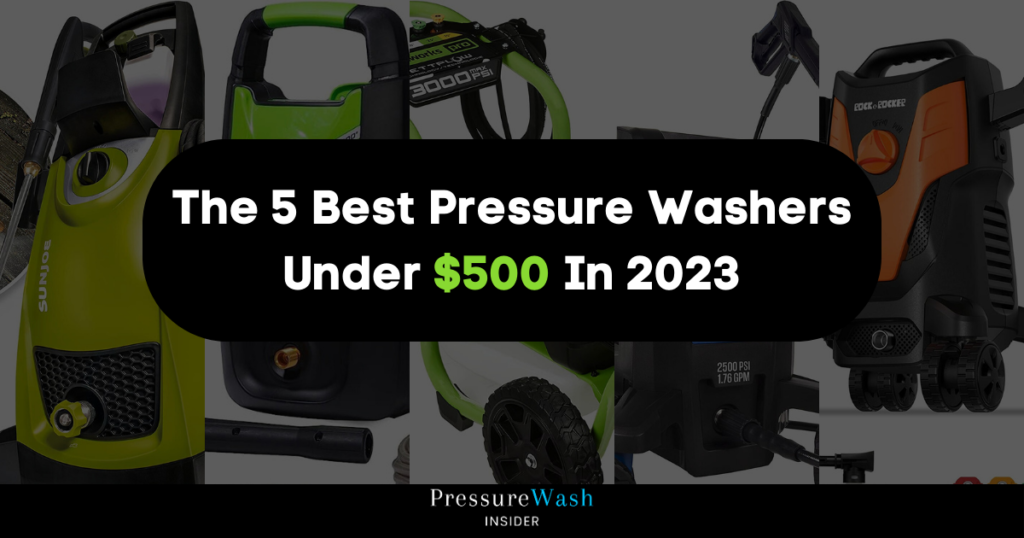
Best Pressure Washers Under $500
Here are our top 5 picks for the Best Pressure Washers Under $500 in 2023:
1. Sun Joe SPX3000 Electric Washer (Best Overall)
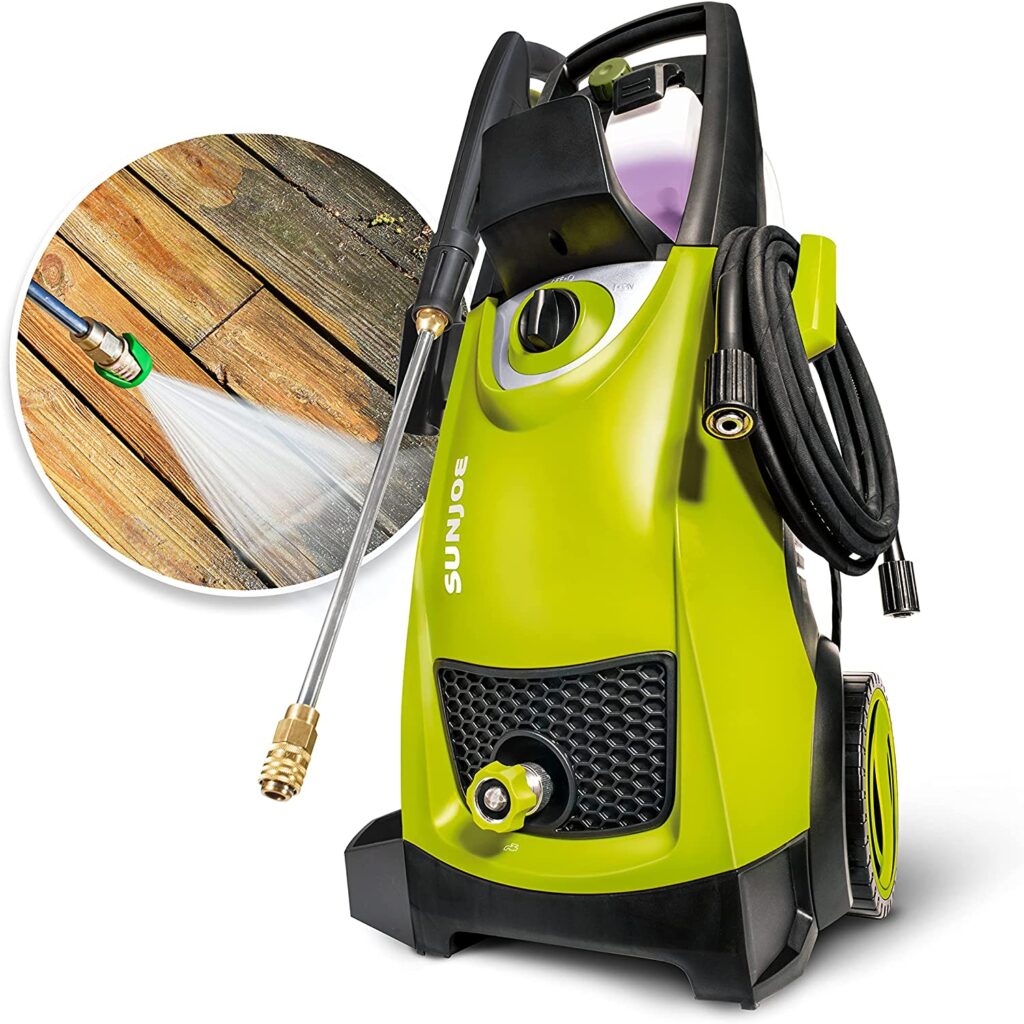
If you’re looking for a powerful washer to help you tackle all your outdoor cleaning needs, then you’ll want to check out the Sun Joe SPX3000. This washer delivers 2030 PSI of water pressure, making it ideal for everything from cleaning your car or fence to power washing your patio. Plus, it’s electric so you won’t have to worry about gas or fumes. And with a 14.5 amp motor, it has plenty of power to get the job done quickly. Read the detailed review of the SunJoe SPX3000.
| Specifications | |
|---|---|
| Weight | 24.3 Pounds |
| Maximum Pressure | 2030 PSI |
| Size | 19.5″L x 15″W x 22″H |
| Power | 14.5-Amp/1800-watt |
| Flowing Gallons Per Minute | 1.76 GPM |
| Hose Length | 20 Feet |
| Cord Length | 35 Feet |
| Capacity | 1.8 Liters |
| Usage | Cleans Cars/Fences/Patios |
| Noise level | 52.6 dB |
| Nozzle open at minimum pressure | Yes |
2. Greenworks 1600 PSI Electric Pressure Washer
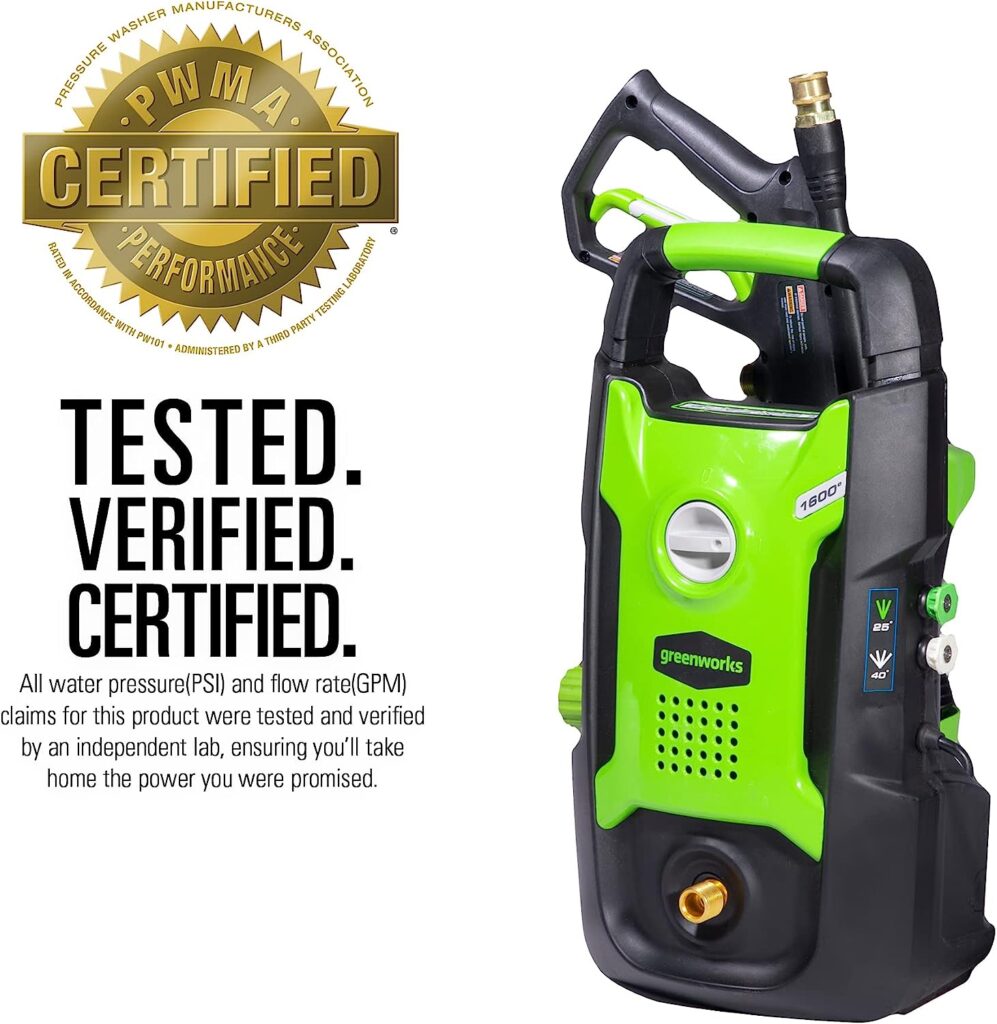
If you’re looking for a lightweight and compact pressure washer that still packs a punch, the Greenworks 1600 PSI (1.2 GPM) Electric Pressure Washer is a great option. It’s perfect for cleaning cars, fences, patios, and driveways, and can handle light to medium-duty cleaning jobs with ease.
One of the best things about this pressure washer is its ultra-compact design. It’s one of the smallest and lightest pressure washers on the market, making it easy to move around and store. It also has a 20-foot hose and 35-foot power cord, so you can easily reach all areas you need to clean.
Another great thing about the Greenworks 1600 PSI Pressure Washer is that it’s very easy to use. It has a simple on/off switch, and the pressure can be adjusted with a simple turn of a knob. Even if you’ve never used a pressure washer before, you’ll be able to figure it out quickly and start cleaning in no time.
| Specifications | |
|---|---|
| Weight | 24.3 Pounds |
| Maximum Pressure | 2030 PSI |
| Size | 19.5″L x 15″W x 22″H |
| Power | 14.5-Amp/1800-watt |
| Flowing Gallons Per Minute | 1.76 GPM |
| Hose Length | 20 Feet |
| Cord Length | 35 Feet |
| Capacity | 1.8 Liters |
| Usage | Cleans Cars/Fences/Patios |
| Noise level | 52.6 dB |
| Nozzle open at minimum pressure | Yes |
3. Greenworks TruBrushless Electric Pressure Washer
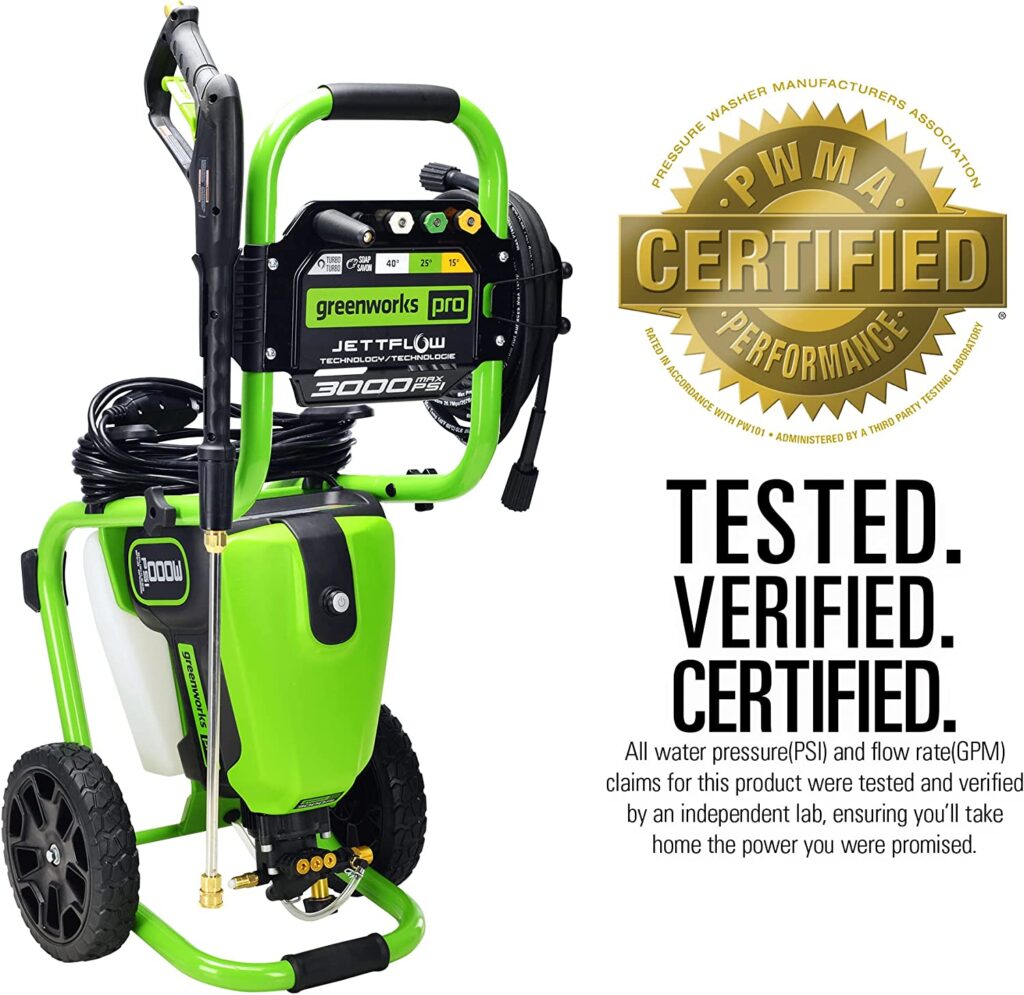
If you’re looking for a reliable and powerful pressure washer, you can’t go wrong with the Greenworks 3000 PSI (1.1 GPM) TruBrushless Electric Pressure Washer. This pressure washer is PWMA certified and features a brushless motor for increased power and performance. With a 3000 PSI max pressure and a 1.1 GPM flow rate, this pressure washer is perfect for a variety of cleaning applications. Plus, the Greenworks 3000 PSI (1.1 GPM) TruBrushless Electric Pressure Washer comes with a 2 year warranty for added peace of mind.
| Specifications | |
|---|---|
| Weight | 50.9 Pounds |
| Maximum Pressure | 3000 PSI |
| Size | 24.09″L x 17.91″W x 38.39″H |
| Power | 14-Amp |
| Flowing Gallons Per Minute | 2 GPM |
| Hose Length | 25 Feet |
| Capacity | 2 Gallons |
4. Westinghouse ePX3500 (Best for Small Spaces)
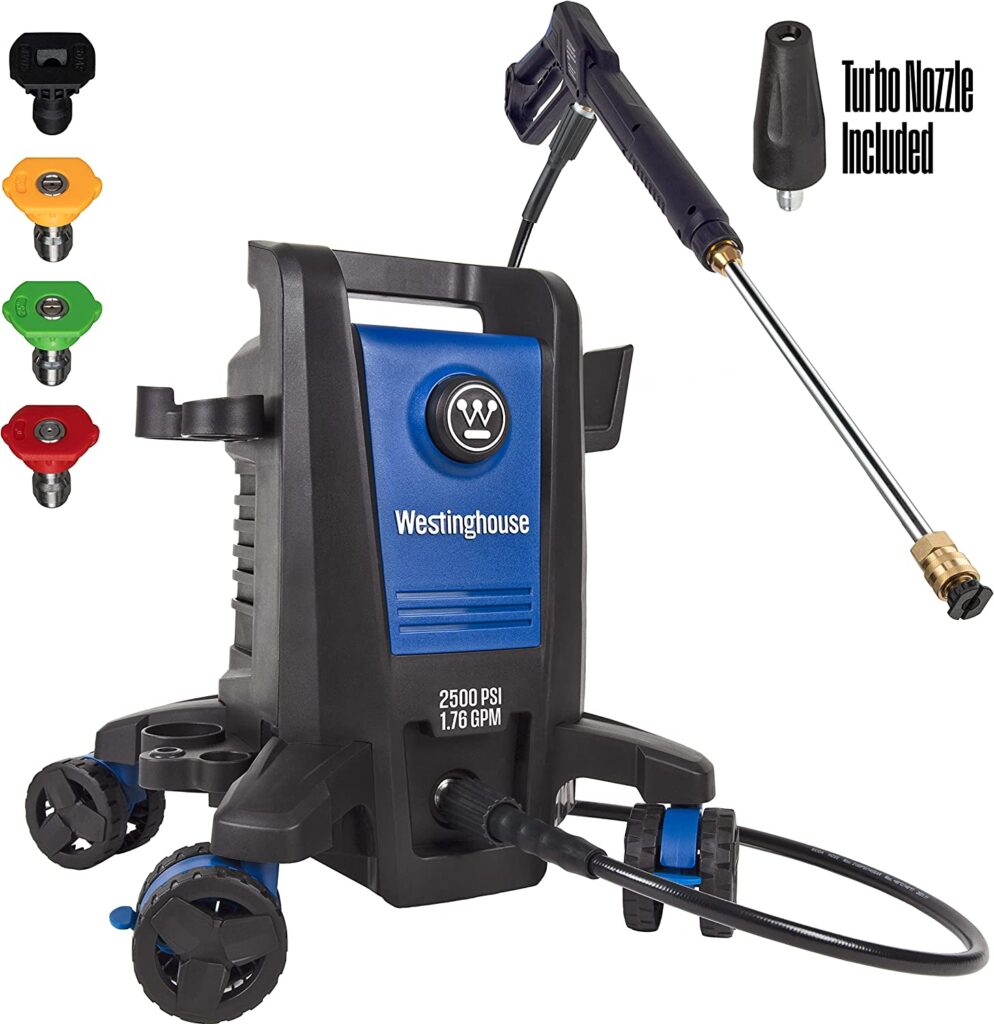
The Westinghouse ePX3500 Electric Pressure Washer is a great pressure washer for cars, fences, driveways, and patios. It has a maximum pressure of 2500 PSI and a maximum flow rate of 1.76 GPM. It also has anti-tipping technology, an onboard soap tank, and a pro-style steel wand. The 5-nozzle set makes it easy to customize the pressure and flow for different cleaning applications.
Overall, the Westinghouse ePX3500 is a great pressure washer for a variety of cleaning applications. It’s easy to use and has a lot of great features. If you’re looking for a durable and powerful pressure washer, the Westinghouse ePX3500 is a great option.
| Specifications | |
|---|---|
| Weight | 19 Pounds |
| Maximum Pressure | 2500 PSI |
| Size | 13.5″L x 14″W x 16.5″H |
| Power | 14.5-Amp/1800-watt |
| Flowing Gallons Per Minute | 1.76 GPM |
| Hose Length | 25 Feet |
5. Rock&Rocker Electric Pressure Washer ( Best for small-scale cleaning)
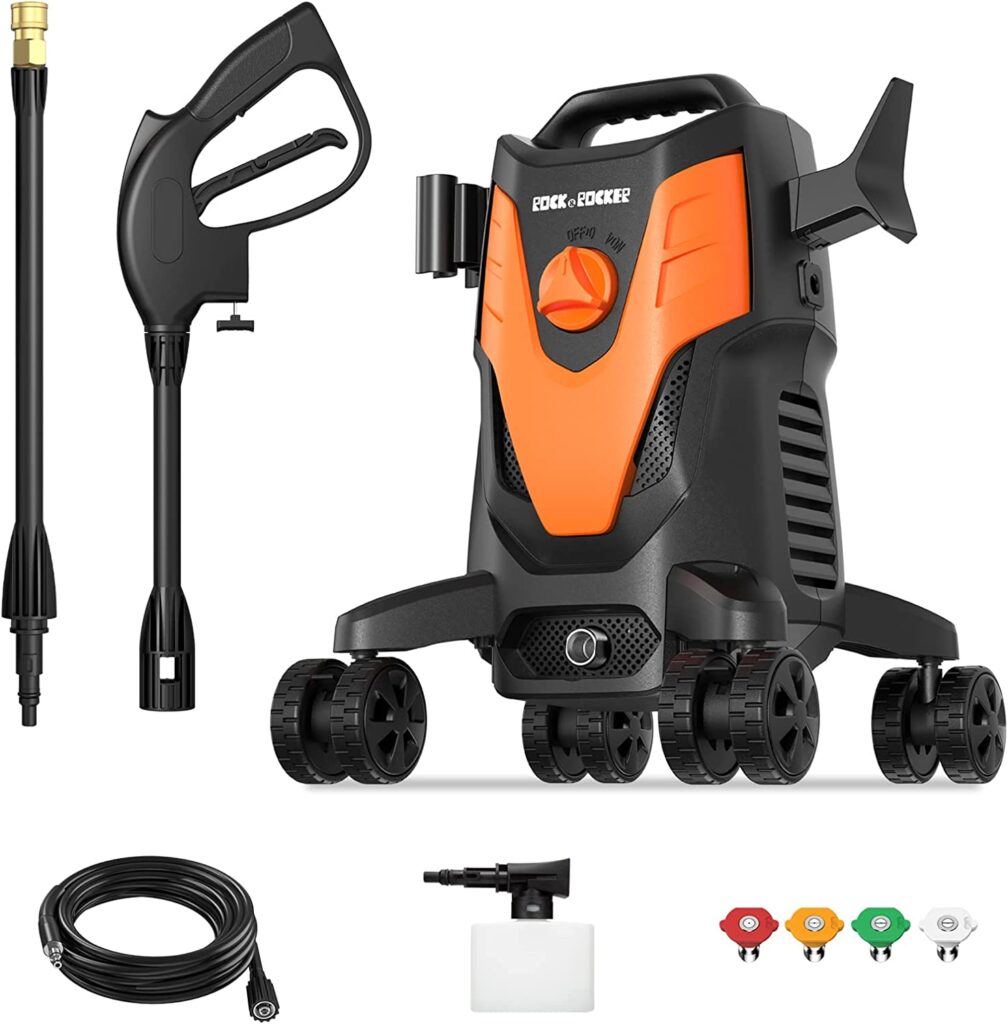
The Rock&Rocker Electric Pressure Washer is a powerful machine that can handle a variety of cleaning tasks around the home. It has a maximum pressure of 1950 PSI and a flow rate of 1.58 GPM, making it ideal for cleaning driveways, patios, and cars. The pressure washer also comes with four quick-connect nozzles, a soap tank, and an IPX5 rating, making it a reliable and versatile machine.
The Rock&Rocker Electric Pressure Washer is a great choice for anyone looking for a powerful and versatile pressure washer. It has a maximum pressure of 1950 PSI and a flow rate of 1.58 GPM, making it ideal for cleaning driveways, patios, and cars. The pressure washer also comes with four quick-connect nozzles, a soap tank, and an IPX5 rating, making it a reliable machine that can handle a variety of cleaning tasks.
| Specifications | |
|---|---|
| Weight | 13.6 Pounds |
| Maximum Pressure | 1950 PSI |
| Size | 15.75″L x 15.75″W x 25″H |
| Motor Power | 1500-watt |
| Flowing Gallons Per Minute | 1.58 GPM |
| Hose Length | 16.4 Feet |
| Cord Length | 16.4 Feet |
Key Factors To Consider
But before you pick a pressure washer we’ll walk you through key factors to consider when selecting a pressure washer and help you make an informed decision that suits your needs.
Determine Your Cleaning Needs
- Assess the cleaning tasks you frequently encounter: driveways, decks, vehicles, or delicate surfaces.
- Consider the level of dirt and grime you need to remove, as different pressure washers offer varying power and features.
Electric or Gas-Powered?
- Electric pressure washers: Lightweight, portable, and quieter. Ideal for smaller tasks and frequent use.
- Gas-powered pressure washers: More powerful and suitable for heavy-duty cleaning. Perfect for larger areas and less accessible spaces.
PSI and GPM Ratings
- PSI (Pounds per Square Inch): Determines the pressure force for effective cleaning. Higher PSI is preferable for tougher stains and surfaces.
- GPM (Gallons per Minute): Measures water flow. Higher GPM helps cover larger areas efficiently.
Consider Portability and Mobility
- Weight and size: If you require a highly mobile unit, opt for a compact and lightweight pressure washer.
- Wheels and handles: Look for models with sturdy wheels and ergonomic handles for easy maneuverability.
Additional Features for Convenience and Performance
- The length of the pressure washer’s hose is crucial for reaching various cleaning areas. Longer hoses provide greater reach and flexibility, allowing you to clean larger spaces without constantly moving the unit.
- Nozzles and attachments: Different nozzles allow for various spray patterns, catering to different cleaning tasks.
- Adjustable pressure: The ability to control pressure settings enables versatility in tackling different surfaces.
- Soap/detergent tank: Convenient for adding cleaning agents to improve cleaning effectiveness.
- Some pressure washers come with extra features like onboard detergent tanks, hose reels, or built-in storage compartments.
- Check the warranty offered by the manufacturer to ensure you are protected against any potential defects.
Budget-Friendly Considerations
- Compare prices and features: Look for pressure washers that offer the best combination of features within your budget.
- Consider long-term savings: Efficient and durable models might cost more initially but can save you money on repairs and replacements.
Which one should you go for?
To choose a pressure washer for yourself or anyone else, make sure you know what you’ll be using the pressure washer for, e.g., for cleaning driveways, cars, or everyday use.
If you are a beginner, you should also consider reading a guide about pressure washers and selecting a pressure washer according to your needs. Although the Sun Joe SPX3000 seems to be a great overall option for most people. You can try the Greenworks 1600 PSI or the Rock&Rocker, as they are a bit more budget-friendly. Or you can take the Greenworks 3000 PSI or Westinghouse ePX3500 if you want greater PSI.
Happy Pressure Washing!
FAQs
Are pressure washers worth it?
Yes, pressure washers can be worth it depending on your specific needs. They are great for efficiently cleaning outdoor surfaces like driveways, decks, and siding. They can save you time and effort compared to traditional cleaning methods.
How much pressure do you need to clean your car?
For cleaning cars, a pressure washer with a pressure range of 1,200 to 1,900 pounds per square inch (PSI) is usually sufficient. Higher pressure can potentially damage the car’s paint or strip away wax coatings, so it’s important to use the appropriate pressure setting and a wide-angle spray nozzle.
How powerful should a pressure washer be?
The power of a pressure washer is typically measured in PSI and gallons per minute (GPM). The ideal power level depends on the tasks you’ll be performing. For light household cleaning, a pressure washer with 1,500 to 2,000 PSI and 1.2 to 2.0 GPM should be sufficient. For tougher tasks, such as removing tough stains or cleaning large surfaces, higher PSI and GPM ratings would be more appropriate.
Should I buy an electric or gas pressure washer?
The choice between an electric or gas pressure washer depends on your specific needs. Electric pressure washers are typically quieter, more compact, and easier to maintain. They are suitable for light to medium-duty tasks. Gas pressure washers, on the other hand, are more powerful and portable, making them better for heavy-duty tasks or areas without access to electricity.
Can you use a pressure washer indoors?
Generally, pressure washers are not designed for indoor use. The high-pressure water spray can cause significant damage to indoor surfaces, electrical systems, and personal belongings. It’s best to use pressure washers outdoors where water can freely disperse without causing harm.
How do you start a pressure washer?
To start a pressure washer, follow these steps:
- Connect the water supply and ensure the hose is free of kinks.
- Turn on the water supply and let it run through the hose.
- Attach the spray gun or wand to the pressure washer.
- Engage the safety lock on the trigger.
- Start the pressure washer engine according to the manufacturer’s instructions.
- Release the safety lock and squeeze the trigger to release water
What is the difference between PSI and GPM?
PSI (pounds per square inch) measures the pressure output of a pressure washer. It indicates the force at which water is sprayed. GPM (gallons per minute) measures the water flow rate, indicating how much water is delivered in a given time. Both PSI and GPM are important factors in determining the overall cleaning power of a pressure washer.
How do you maintain your pressure washer?
To maintain your pressure washer, you can follow these general guidelines:
- Regularly inspect the hoses, nozzles, and connections for any damage or leaks.
- Clean or replace the inlet filter regularly to prevent clogging.
- Flush out any remaining detergent or debris from the system after each use.
- Use pump conditioner or antifreeze during winter storage to prevent freezing and damage.
- Follow the manufacturer’s instructions for oil changes, spark plug replacement, and other routine maintenance tasks.
- Store the pressure washer in a clean, dry area to protect it from the elements.
How Often Should You Replace the Nozzle on Your Pressure Washer?
As a proud owner of a pressure washer, you understand the importance of regular maintenance…
DIY Eco-Friendly Cleaning Solutions for Pressure Washing
In today’s world, where environmental consciousness is on the rise, finding eco-friendly alternatives to everyday…
Do Pressure Washers Really Have Spark Plugs?
Pressure washers are powerful tools that use high-pressure water to clean various surfaces. They are…
Why A Pressure Washer Only Runs On Choke?
As a seasoned pressure washer user, I have come across various issues that can be…
5 Best Pressure Washer Surface Cleaners: Keeping Your Surfaces Gleaming Clean!
Welcome to the ultimate guide on the best pressure washer surface cleaners! If you’re tired…
Can Pressure Washers Damage Pipes?
I have always been concerned about keeping my house looking clean and well-maintained. One of…

